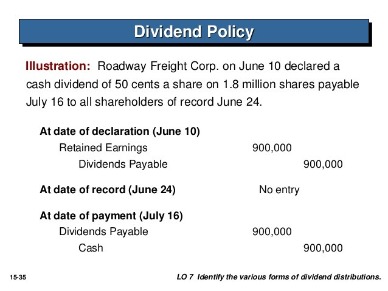
The tips below are industry standards that will help any small business excel at bookkeeping. Business owners often forget to get receipts for charitable donations. Although companies of specific structures, such as LLCs and partnerships, can’t claim charity contributions as business expenses, the owner often can. Ask recipients of in-kind donations for written confirmation of the time spent, and use documentation to defend the fair market value of any property donations you make. If you own or manage a business or are looking for jobs in an accounting department, you must understand accounting basics, including important terminology.

Accounting Tips for Small Businesses
Keep every business-related expense separate and then routinely reconcile the account, which helps to ensure your bank statements and accounting match up. Once the adjusting entries are made, an adjusted trial balance must be prepared. This is done to test if the debits comparability principle match the credits after the adjusting entries are made. This is the final step before the preparation of the business’ financial statements. Many expenses may be deductible from federal income taxes, in whole or in part, depending on your business’s circumstances.
Choose an entry system
They also handle financial statements, file tax returns, and advise on financial strategy. Usually, this is done implicitly; after all, money needs to be collected from customers, and bills must be paid for the business to continue to operate. In addition, having everything in one system is not optimal and usually doesn’t work. As much as accounting software claims to do it all, it’s sometimes easier to use an Excel spreadsheet.

Develop A Close Partnership With The Financial Planning And Analysis Team
If you decide to extend credit to customers, you will need a consistent system of creating and sending invoices. For help determining whether your worker is an independent contractor or an employee, see our 1099 vs. W2 article. If you employ independent contractors or freelancers, check out our How to File 1099 guide. Accurate invoicing is the key to getting paid in a timely and organized manner.
Keep a close eye on accounts receivable.
Many entrepreneurs assume that an LLC (limited liability company) is the way to go, but depending on their business, it might not always be the most advantageous tax option. The key is to simplify the process of capturing and organizing receipts. It’s much easier to adopt a habit that’s easy rather than one that’s complex. Regardless of what kind of small business you own or plan to start you need to stay on top of your accounting. Failing to do so can and will result in unnecessary issues and obstacles down the road that could potentially slow down or even halt your business growth.
Tips for Small Business Bookkeeping
Start your free trial with Shopify today—then use these resources to guide you through every step of the process. Explore GnuCash’s features, safety, and comparisons with Bench Accounting, QuickBooks and other alternatives. Your concise guide to understanding GnuCash’s role in financial software. If you’re using tax filing software, you may have the option to organize and store receipts electronically.
This is your business, so it’s critical that you know where it stands. Spending the time to establish a smooth accounting system now can help you avoid accounting mishaps down the line, which can cost you. “It’s an absolute necessity to consult with an attorney and tax professional when initially setting up your business entity. If you can’t afford to do that, then you can’t afford to start a business,” says David Baddeley, CEO of Finance.co.uk. As a small business owner, you will be faced with countless responsibilities and tasks, so alleviate some of the stress with these ways to simplify accounting.
Her areas of expertise include accounting system and enterprise resource planning implementations, as well as accounting business process improvement and workflow design. Jami has collaborated with clients large and small in the technology, financial, and post-secondary fields. Although staying on top of accounts payable is crucial, accounts receivables dictate your company’s survival. If money isn’t coming in the door, the company can’t continue operating.
If you’re looking for a specific answer, use the links below to jump to a section of your choosing. Create a solid internal structure for following up on your accounts receivables. Pick a day to process and mail your invoices and another date to follow up on aged accounts receivables. Extend credit on moderate terms, if needed and make sure to document everything to pursue payment through a collection agency or the court. Profit and loss statements is a recap of your business expenses, costs and revenues on specific dates. The accounting tips for small businesses can help you figure out long-term goals, ride financial ups and downs and increase your profits.
With that in mind, here are 20 small business accounting tips you should be doing to manage your business. Your chart of accounts should include accounts for assets, liabilities, equity, income, and expenses. It’s essential to record every single transaction, including details like date, amount, description, and the accounts affected. It may seem complex at first, closing costs explained but it ensures accuracy and shares insights into your financial health. Centaur Digital Corp, helping busy business owners efficiently manage their accounting system. Although it’s trendy to register in states with zero tax, keep in mind that for single-owner businesses, your home state will tax your worldwide income, just like the federal government.
- A small business loan may support you when starting up or investing in growth resources.
- Centaur Digital Corp, helping busy business owners efficiently manage their accounting system.
- That means getting a relevant degree and experience and taking the Certified Public Accountant (CPA) exam to advance your career.
- Create a payroll file sorted by payroll date and a bank statement file sorted by month.
- One of the messiest accounting blunders small business leaders make is mixing their business and personal funds.
There are three financial statements that all small businesses should consider creating. Whether you have a seasoned or new business, brick and mortar shop, or online store, you need to handle numerous monthly accounting tasks. Managing business finances doesn’t have to be the bane of your professional existence.
Most invoices are due within 30 days, noted as “Net 30” at the bottom of your invoice. Without a due date, you will have more trouble forecasting monthly revenue. Read more about getting paid faster in our guide to getting invoices paid on time. The following accounting checklist lays out a recommended timeline for the accounting functions that will show the state of your business and allow you to streamline your tax preparation. For a thorough understanding of business accounting, continue reading.
By reducing the time spent on time-consuming, labor-intensive work, you and your team can focus on more high-level and creative projects that require a human touch. One way to tackle this process is with the Eisenhower Box technique. It’s a decision matrix where you categorize your tasks as urgent and important, important but not urgent, urgent but not important, and neither urgent nor important. The key to working through it begins with differentiating between essential and non-essential tasks. Read on as we explore 25 small business productivity tips to help cultivate a productive workplace. For example, set a monthly finance charge of 1 percent or 2 percent of the principal.
Though not a recommended method, all you need to start doing accounting for your business is a pencil and paper, and a lot of patience. To make it easy to get started, we’ve created a guide with the 10 essential steps necessary for accounting for small business. Part of your accounting process should include optimizing your cash flow. Improving what is standard costing in simple words cash flow is important for every business, from large corporations to solopreneur freelancers. Your P&L statement should include revenue, cost of goods sold, gross margin, operating expenses, other income and expenses, and net profit. “If you can capture all of your payments through one gateway, it makes accounting much easier.
A master’s degree in accounting will help you satisfy the semester credit hours required to become a licensed CPA. Get a free Wrike trial to establish a predictable cash flow system, eliminate the guesswork in accounting, and achieve small business success. In such a scenario, it may be difficult to obtain the necessary funding for business expansion or complete capital expenditures. Having your accounting and bookkeeping in order will help you get external funding or bank financing for major purchases. Whenever there is a major purchase in the offing, a business will need to have adequate cash flow to meet it. Investing in a professional tax accountant can bring immense value to your business, with a time commitment of a few hours per week or month.